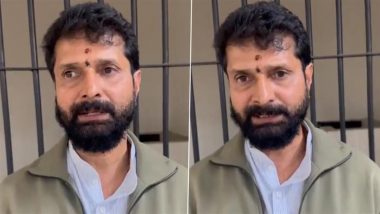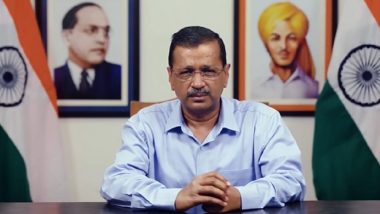New Delhi, Jun 1 (PTI) The Delhi High Court Monday notified the rules to consolidate and streamline the procedure relating to use of video conferencing for courts here.
The “High Court of Delhi Rules for Video Conferencing for Courts 2020", which come into force from Monday, have spelt out the details relating to court's functioning, service of summons, examination of persons, exhibiting or showing documents to witness or accused at a remote point, judicial remand, ensuring seamless video conferencing, framing of charge, examination of accused and proceedings under Section 164 of the CrPC.
Also Read | Punjab National Bank Cuts Repo-linked Lending Rate by 40 Bps to 6.65% From 7.05%.
The rules said video conferencing facilities may be used at all stages of judicial proceedings conducted by the court.
It said all participants of video conferencing shall wear sober attire consistent with the dignity of the proceedings and lawyers shall be appropriately dressed in professional attire prescribed under the Advocates Act, 1961.
“Police officials shall appear in the uniform prescribed under the relevant statute or orders. The attire for judicial officers and court staff will be as specified in the relevant rules prescribed in that behalf by the High Court. The decision of the Presiding Judge or officer as to the dress code will be final,” it said.
It further said that the proceedings shall be conducted at the appointed date and time and punctuality shall be scrupulously observed. The case will be called out and appearances shall be recorded on the direction of the court.
The rules further said that every participant shall adhere to the courtesies and protocol that are followed in a physical court and judges will be addressed as 'Madam/Sir' or 'Your Honour'.
Officers will be addressed by their designation such as 'Bench Officer/Court Master' and advocates will be addressed as 'Learned Counsel/Senior Counsel', it said.
Advocates and others attending the proceedings have to keep their microphones muted till they are called upon to make submissions and remote users, who are participating in the hearing through video conferencing, shall ensure that their devices are free from malware.
“Remote users and the coordinator at the remote point shall ensure that the remote point is situated in a quiet location, is properly secured and has sufficient internet coverage. Any unwarranted disturbance caused during video conferencing may if the presiding judge so directs render the proceedings non-est,” it said.
The mobile phones have to be switched off or in airplane mode during the proceedings and the participants should endeavour to look into the camera, remain attentive and not engage in any other activity during the hearing, it said, adding that there shall be no unauthorised recording of the proceedings by any person or entity.
In criminal cases, the expenses of the video conferencing facility shall be borne by such party as directed by the court. In civil cases, generally, the party requesting for recording evidence through video conferencing shall bear the expenses.
To observe the requirement of an open court proceeding, members of the public will be allowed to view court hearings conducted through video conferencing, except proceedings ordered for reasons recorded in writing to be conducted in-camera. The court shall endeavour to make available sufficient links (consistent with available bandwidth) for accessing the proceedings, the rules said.
(This is an unedited and auto-generated story from Syndicated News feed, LatestLY Staff may not have modified or edited the content body)













 Quickly
Quickly




















